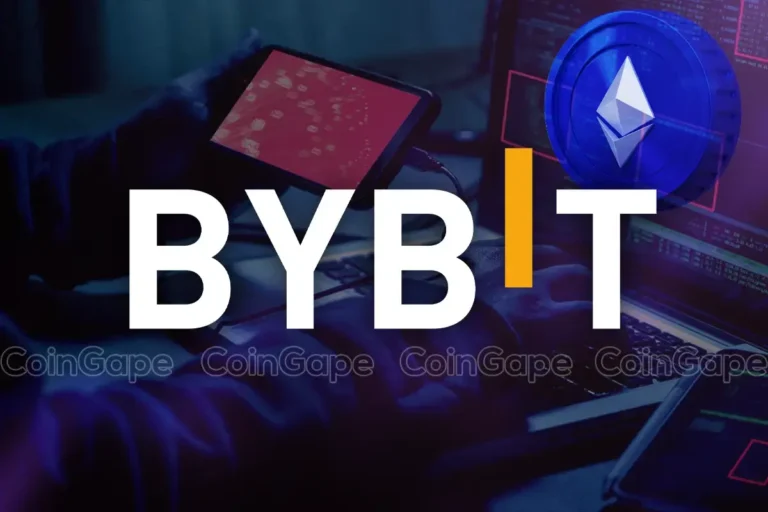Polygon’s MATIC Set for Transformation with POL Upgrade: Founder’s Insight

- Sandeep Nailwal, the founder of Polygon, a scaling solution for Ethereum, has unveiled an ambitious plan for a significant upgrade to the platform’s native token, MATIC.
- After months of uncertainty that followed the Polygon 2.0 tokenomics announcement in July 2023, this update may improve investor confidence and boost network activity in the near future.
Sandeep Nailwal, the creator of Polygon, a scaling solution for Ethereum, has unveiled an ambitious plan for a significant upgrade to the platform’s native token, MATIC. This upgrade involves the introduction of a new token called POL, which is designed to offer users the advantages of multi-chain staking while mitigating the risks typically associated with re-staking.
The proposed POL token aligns with Polygon’s expansion strategy, aiming to transform the platform into an ecosystem of Layer-2 chains. This shift from a single chain to a Layer-2 ecosystem holds the potential to foster greater interoperability and liquidity sharing among Polygon users.
According to the white paper detailing the POL token, it is envisioned to be the driving force behind Polygon’s aspiration to become the Value Layer for the Internet. Comparing it to Ethereum’s ETH, which allows holders to act as validators within the protocol, Nailwal dubbed POL as a ‘hyperproductive’ token, ushering in a new era of token design.
One of the notable features of the POL token is its ability to enable validators to validate multiple chains and earn rewards specific to each chain. In the evolving Polygon 2.0 ecosystem, validators could take on various roles within different chains.
https://twitter.com/sandeepnailwal/status/1696102126236143881
Key Advantages
With the revamped protocol structure, POL brings numerous significant advantages for the Polygon ecosystem.
Enhanced Ecosystem Security: A robust and widely distributed pool of Proof-of-Stake (PoS) validators contributes security, resilience, and impartiality to every Polygon chain. The incentivized participation of validators strengthens security across multiple chains.
Unlimited Scalability: POL is designed to accommodate the exponential expansion of the Polygon ecosystem, ensuring its readiness for broader adoption. The scalable nature of POL allows the validator pool to grow to accommodate thousands of Polygon chains without compromising security.
Sustained Ecosystem Support: Recognizing the early stages of the Polygon ecosystem and the industry as a whole, POL establishes an enduring in-protocol mechanism to provide ongoing support for future activities.
Frictionless Experience: In contrast to other blockchain protocols that often require users and developers to possess, stake, or consume native tokens to access the network, POL is engineered to eliminate any such friction, offering a smoother user and developer experience.
Community Empowerment: Rooted in decentralization, Polygon is built to be governed by its community. POL is envisioned to possess governance rights, serving as an essential component of governance frameworks.
Validators are mandated to stake POL as a prerequisite for joining the validator set. Staking serves various pivotal roles, including deterring Sybil attacks, aligning validators with the ecosystem’s success, and enabling slashing mechanisms to penalize malicious validators.
Upon staking POL, validators gain access to the validator pool, becoming eligible to validate any Polygon chain. In return for their contributions, validators enjoy three primary sources of incentives:
1. Protocol Rewards: The staking protocol continuously generates predefined amounts of POL, distributing them among active validators as a foundational protocol reward, replacing the current MATIC protocol rewards for Polygon validators.
2.Transaction Fees: Given the ability to validate multiple chains, validators collect transaction fees from each of those chains.
3.Supplementary Rewards: To attract more validators, specific Polygon chains can opt to introduce extra rewards, which can be denominated in various tokens, including but not limited to POL, stablecoins, or native tokens of those chains.
It’s noteworthy that Polygon’s concept of validation encompasses more than its conventional interpretation, enriching the value proposition of the validator role. In addition to validating multiple chains, validators can take on multiple roles within a single chain. These roles encompass transaction acceptance, block generation, zero-knowledge proof generation, participation in Data Availability Committees (DACs), and more.
A Potential Rebound?
In the aftermath of the altcoin market crash on August 17, MATIC’s value has remained below the $0.60 mark. Yet, a careful examination of the underlying on-chain data reveals a resurgence in Polygon’s economic engagement to its typical levels. On August 20, the Polygon network registered a count of 182,370 Active Addresses, marking its lowest figure since May 7, 2023. However, as of August 28, this count has surged to 238,690 Active Addresses, drawing closer to the levels witnessed prior to the abrupt crash on August 17.
The Active Addresses metric encapsulates the daily tally of distinct wallet addresses involved in transactions. Generally, a consistent upsurge in Daily Active Addresses tends to correlate with heightened market demand, as more users acquire the native token to execute transactions.
Furthermore, the recent update concerning the “POL token,” as presented by Sandeep, has the potential to augment the confidence of MATIC holders and potentially elevate network activity in the imminent days.
To sum up, the recent update from Polygon’s Co-founder has the potential to reverse the negative sentiment encircling MATIC and inadvertently propel MATIC’s value towards a recovery trajectory.















